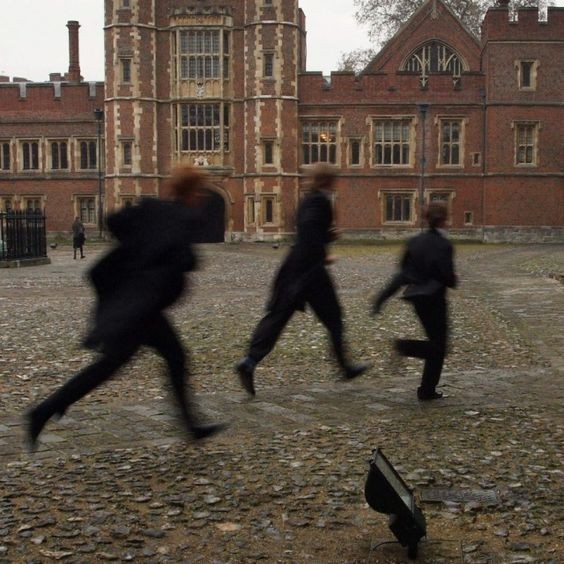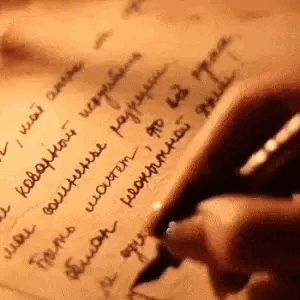#academia
pippenpaddlopsicopolisthethird:
The holy grail of searching through academic literature is coming across a string of publications that are like:
Here’s An Idea. Smith et al. 2016
Terrible Idea; a comment on Smith et al. 2016. Johnson 2016.
You’re Wrong Too; a response to Johnson 2016. Nelson 2016.
Guys Just Stop Fighting, None Of Us Know What’s Going On; a Review of the Current Literature. McBrien 2017.
because this is such a cool resource and education is so expensive i thought i’d share this
edX is a website that’s partnered with a huge number of universities worldwide to offer online courses on a huge range of subjects. you know what makes this even more exciting? a huge number of these courses are free.
you can take university level courses, basic courses, interest courses, business courses. you can take courses on superheroes or calligraphy or antarctica. for free. run by top level universities (the founders are MIT and harvard) and top level academics. even the ones that do cost money aren’t all that expensive (the first one i found was 300 bucks. compare that to how much a university course is, and it’s a huge saving).
they’re in several languages, depending on the university offering them as well, not just english.
so yeah. wanna learn something fun? wanna get something to boost your cv? wanna accelerate your current education?
try edX
We’ve all dreamed about what our “perfect future” would look like, but did you realize just how much that actually tells you about yourself?
Each and every dream or goal you have for yourself can teach you a lot about your own personal values and desires. As such, it can also tell you what you truly need to focus on to get where you want to be!
Start by answering the following question: How do I want to live?
There’s no deadline of “…in five years” or anything like that. It’s just- what does your ideal life look like? In the form of bullet points, jot down any and everything you think of that you think is important to the ideal.
Then go back and answer a different question: What does my dream lifestyle say about me?
There are typically two categories of information you can glean from this exercise. The first is what you value.
At the very core, the center, of who you are, what is the absolute most important to you? For example, I noticed that a lot of my “ideals” that came to mind involved having the discipline to eat well or having more time and funds to throw into self-care and beauty routines. This tells me that I value my own health and physical appearance and it is important to me that I view myself in a positive light, even if no one else does.
For me, that is something I have struggled with for a long time, feeling confident in my own body. At some point, it became one of my fears and a weakness to me. However, what we fear about ourselves or the world around us can often tell us exactly what we value so deeply. The reason we fear certain things is because we have something to protect there, something we love and cherish, and we desperately want to prevent it from being taken from us. By focusing on those areas in our self-reflection, we can help strengthen those values and desires that are hidden there so that we can wear them more confidently.
The second category of information you can learn about from this exercise is what you desire.
While your values are your needs, your desires are your wants. Could you survive without them? Probably, but that doesn’t make them any less important to you. Your values are things that have always been a part of you, but have weakened over time and need to be given strength. A desire, on the other hand, are things that haven’t come to pass yet but are essential to your continued growth as a person. They can show you what pieces of yourself you have outgrown or the best building blocks to help you strengthen, or develop new, core values.
For example, when looking at my “ideals”, I can see that the words “confidence” and “discipline” and “self-control” pop up a lot, always in the context that they are something I lack. That’s not a negative way to write about myself, it’s simply that at my current stage in life, I have noticed this and now I am expressing the desire to change that. Due to my personal context, this tells me that I desire the confidence to speak when needed, to stay silent when it isn’t, and say precisely what needs to be said, instead of rambling anxiously and feeling uncomfortable in my own silence. If there is something about yourself that really bothers you, it’s your brain telling you that whatever is on your nerves is no longer necessary to you, that you’ve outgrown it and need something else now. In my case, I feel out-of-control in social situations and after looking at what my “ideals” actually are, can safely say that the issue is rooted in low, or a lack of, self-confidence.
Have a positive self-reflection day everyone!
1. “Raven” was an occasionally-encountered name for a girl in the contemporary period, and “Ebony” would be at least recognizable as a name. The other elements of this name are flatly atypical.
2. During this part of the War Period, this character’s hairstyle would not be considered shocking, but it would be viewed as garish and nonconformist.
3. A contemporary music performer known for a melancholy style of music and a gothic and dramatic aesthetic. The title of the work probably comes from one of her songs. However, her aesthetic and attitude has little in common with that in this work, being much more conventional and less garish.
4. A member of the contemporary band “My Chemical Romance”, also notable for a “gothic”, melancholy, and macabre aesthetic
5. i.e. the speaker considers him to be handsome and attractive; despite the pornographic material later in this work, the word “f_______” is here used only as an expletive.
6. Vampires as romantic figures had been increasing in popularity over this period, with a trend away from malicious monsters towards seductive but more benevolent figures, romanticized by their capability of being terrible.
7. Strangely, despite the characterization of this character as a Satanist, “witch” should here be characterized as having meaning similar to “wizard” and not “idolater”, “sorceress”, “maleficar”, or other practitioner of what we today recognize as “witchcraft”. The background material to this work constantly faced accusations of being satanic by an uneducated reactionary public to whom the difference between technology, wizardry and witchcraft was not meaningful (”witch” was sometimes even considered a female equivalent to “wizard”!), which completely failed to diminish its popularity.
8. It is important to understand that “goth” as an aesthetic, counterculture or subculture had a completely different meaning in the contemporary period than it does today – what remains similar is the love of the melancholy, the macabre, the dramatic, the romantic, and contempt for conventionalism. In the mid-to-early-late War Period, “Gothic” people were associated with contempt for morality, certain types of sexual display (usually of a shocking and sometimes fetishistic type), various forms of concupiscence, and a fairly significant connection to the occult and even to outright Satanism, though the latter was all but universally an affectation (this is true of most Mid War Period satanism). See contrast on p 321, The Gothic Movement In the Catholic Church. Moreover, the “gothic” aesthetic as described by this character is a stunted and over-the-top form that has also been corrupted by the counterculture-commericalism that was universal in the Late War Period.
9. A clothing store mostly specializing in counterculture-commercialized and faddist apparel. Critics accused it of being a mercantile vulture that fed by turning more honest and vivacious countercultures into fads.
10. It was almost unheard-of for women in the Mid or Late War Period to wear corsets, but they appeared in the Gothic subculture (which itself heavily borrowed from sources such as Victorian-era clothing, including mourning dress). However, what Enoby is describing is probably not actually a true corset, but a “corset top”, which is essentially a laced bodice. Either would be worn with neither chemise nor overblouse.
11. Probably a nondraped skirt that barely passes her wrist.
12. Hose, stockings, or tights in the form of a wide-open mesh
13. Probably not actually military issue boots; these were tall, heavy black leather boots with lacing all the way up.
14. This character’s outfit would be considered inappropriate for school in the Late War Period, but not shocking to Late War Period mores except by its garishness.
15. Originally meant students at a university-preparatory school; with the extremely high percentage of students seeking to attend university in the Late War Period, this came to mean a subculture of young people who adopted a highly conventionalistic and professionalistic attitude and sought admission to the prestigious and traditionalistic universities in the Eastern United States, often without academics being their true passion. Such people were often viewed as social climbers and sometimes attracted contempt from both their less-professionally-oriented peers and from those who were true intellectuals.
16. Also known as “giving the finger”; a very rude gesture in the War Period as it is in ours.
18. This phrase went through considerable popular memetic mutation (as did the entire tract): “It was _______ <weather> so I felt ________. A lot of _______ stared at me. I ________ them.” See extra material 34c.
17. I.E. “How are you today?”, “how are you feeling?” as a greeting.
do you think the writer of My Immortal lives in quiet pleasure knowing what they’ve brought into the world cannot be killed nor can they be held accountable
The slow horror of this post, of realizing:
1. First, that this is about My Immortal, fairly obvious from the start. Okay, meme time.
2. Second, that this is characterized as a future English literature class’s textbook footnotes a la our time period’s school texts of Shakespeare works, which, haha, seeing that framed as if this future literature class would be so far removed from our understanding of culture as to need these notes and yet would still be in a literature class formatted similarly to ours, especially combined with the idea that My Immortal would be considered typical “literature,” that’s funny, right?
3. Third, that by “the War Period/the Late War Period” they mean us, and the implications of that name for the time period added to the idea that so much culture from this time period has been wiped out and would be totally unfamiliar to the students of this class, and oh. Oh, that’s not… that’s not funny anymore.
tumblr what the hell
This is a MASTERPIECE.
The best post eva.
run rabbit run.



Flectere si nequeo superos, Acheronta movebo.


If I can not bend the will of Heaven, I shall move Hell.
Non est ad astra mollis e terris via


There is no easy way from the earth to the stars


i find broken loveintattered books
Anyone got tips on how to beat imposter syndrome and actually become productive
eqbalahmad-edwardsaid-archive:
Goals
Hey fellow owners of college degrees that turned out to be useless; I’ve got a career plan for us
those who DO learn history are still doomed to repeat it
This makes me wish I’d gotten my degree in Finland - there, they give you a sword!!
Post link
I love assassins creed odyssey but I will never forgive it for teaching me the modern greek pronounciation of ancient greek locations…no anglophone scholar takes me seriously when I say “vee-o-tía” instead of beotia… the modern greek just sounds so much better
Me: ah yes, I suffer from imposter syndrome. I feel as if I haven’t earned my place in academia, and that I’m just pretending to be smart…even though I get good grades and my supervisors have great things to say about my work. This is a result of imposter syndrome.
The tiny Ben Shapiro that lives in my brain: Ok, but let’s say hypothetically










Some cozy academia stims!
4/3 prompt from @armadastimz: Board based on my favorite aesthetic!
Please like and/or reblog!
hey biology/behavior/ecology nerds, a really neat job ad just came across my desk from someone I know to be good to work with & good people. the ad is looking to find researchers who are interested in approaching animal behavior in a way informed by systems thinking and feminist science and technology studies. if you’re interested in developing cross-disciplinary skills, it looks like a pretty good opportunity, altho it does require moving to Colorado.
Ad has positions available for both research techs (you only need a bachelor’s) and postdocs (need PhD). small moving allowance included.
Cross-Disciplinary Animal Behavior Research Associate/ Professional Research Assistant
reverse gaslighting where i pretend to know exactly what you are talking about
academic conferences
Work meetings
Interviews
Auditory processing disorder
“defend your thesis” why are you attacking my thesis
Study Advice: 5 Tips for the Writing of Research Questions and/or Proposals
The horror of any student: the research question and/or proposal. Oh, the hours I have spent struggling with this deceptively simple task… It seems so easy. All you need to do is come up with a question you want to answer and explain how you plan to go about it. How difficult can it be? Very, as it turns out.
By popular demand, I have put together a list of 5 very basic tips to help you distill your disconnected thoughts (“something about Christopher Isherwood”) into a coherent concept (“how the architecture of the main character’s house reflects his struggle as a gay man living in 1950′s America in Christopher Isherwood’s A Single Man, how the interpretation in Tom Ford’s film adaptation differs, and why this matters”).
(Note: these tips are specific to students of literature, but the basic principles apply to other fields as well.)
Post link




